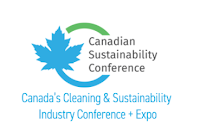January 26, 2022
As environmental and sustainability goals increasingly influence corporate decisions on where to invest and grow, the Ontario government is taking action and leveraging the province’s world-class clean electricity grid by developing a voluntary clean energy credit (CEC) registry to boost Ontario’s international competitiveness and attract jobs.
“Ontario families have done the heavy-lifting and built one of the cleanest electricity grids in the world. Our government is ensuring Ontario is leveraging this competitive advantage to drive investment and create jobs.” said Todd Smith, Minister of Energy. “The creation of a clean energy credit registry will give businesses the opportunity to meet their corporate environmental and sustainability goals when choosing to operate in Ontario and will also generate revenue which could be returned to Ontario ratepayers to help lower electricity costs.”
Voluntary CECs are certificates that each represent 1 megawatt-hour (MWh) of clean electricity that has been generated from a non-emitting source, such as solar, wind, bioenergy, hydroelectric and nuclear power. A provincial CEC registry will leverage Ontario’s already world-class clean electricity system, that was 94 per cent emissions-free in 2020, and allow businesses to voluntarily purchase and retire these CECs to meet their corporate sustainability goals and demonstrate that their electricity has been sourced from a non-emitting resource. A CEC registry could return funds raised through the purchase of CECs to Ontario ratepayers and could support future clean energy generation in the province.
The Ontario government has directed the Independent Electricity System Operator (IESO) to research and report back on the design of a provincial CEC registry, that would give businesses more choice in how they achieve their corporate sustainability goals. The IESO will deliver its report by July 4, 2022. The government will consider the report as well as stakeholder input, with the intention of having the registry available by January 2023.
“A voluntary clean energy credit market could be a key tool to help Ontario electricity customers realize their clean energy preferences,” says Lesley Gallinger, President and CEO of the IESO. “We will engage with industry stakeholders, businesses, and others as we assess options for a potential market.”
The commitment to develop a registry builds on continued government action to make Ontario the best place to create jobs by cutting red tape and electricity prices all while helping businesses reduce emissions to meet the Made-in-Ontario Environment Plan’s climate targets. This will make life easier for Ontarians by returning more money to their pockets as they continue to deal with financial challenges presented by the pandemic and will help protect the environment for future generations.
“By lowering taxes, reducing electricity costs and cutting red tape, our government has reduced the cost of doing business in Ontario by $7 billion a year,” said Vic Fedeli, Minister of Economic Development, Job Creation and Trade. “Developing a clean energy credit registry with flexible options adds to the list of benefits to businesses looking to expand and invest in Ontario.”
Quick Facts
There is currently no official centralized registry that tracks and enables purchase of CECs for electricity generated and consumed in Ontario.
Developing a CEC registry would allow for the simplified creation, trading, and retirement of CECs in Ontario.
CECs, or similar voluntary registries, exist in other competing North American jurisdictions, such as Ohio, Pennsylvania, Illinois, Indiana, Wisconsin and the New England states.
Purchasers will be able to source CECs from one or multiple solar, wind, bioenergy, nuclear, and hydroelectric generation facilities in Ontario to meet their individual or corporate goals.
Quotes
"The best places to do business are those that are forward-thinking. Access to a clean energy mix is becoming one of the driving factors for companies when thinking about where to grow their business. This is an important initiative that positions the province as a smart partner for companies looking to reduce their carbon footprint." - Trevor Dauphinee CEO, Invest Ontario
"Retail Council of Canada (RCC) supports the Ontario government’s commitment to develop a Clean Energy Credit system. Delivering products – be it clothing or groceries, toys or power tools – to our customers in an environmentally friendly way is a top of mind imperative for retailers. This Made-in-Ontario initiative will lead to a competitive marketplace, wherein businesses can voluntarily make commitments which will green our grid, drive local innovation, all while delivering competitively priced credits to business." - Diane J. Brisebois President and CEO, Retail Council of Canada
"GM applauds the Ontario government’s announcement of a new program to introduce a voluntary clean energy credit registry that gives businesses options to meet environmental and sustainability goals." - David Paterson Vice President, Corporate and Environmental Affairs, General Motors Canada
"OPG has seen a strong increase in interest, and uptick in sales, for environmental attributes from our non-emitting hydroelectric and nuclear facilities. The government’s proposed centralized CEC registry is a significant step that will benefit ratepayers and support Ontario electricity consumers wishing to track and report on their emissions goals." - Ken Hartwick President and CEO, Ontario Power Generation (OPG)
Additional Resources
Open for Business
We're helping to grow the economy and create good jobs. Find the resources you need to do business, work and invest in Ontario.
Find programs to reduce your electricity bill
Learn about programs and credits to reduce your electricity bill.
Ontario’s Environment Plan
Learn about Ontario’s plan to address climate change and protect our air, land and water.

